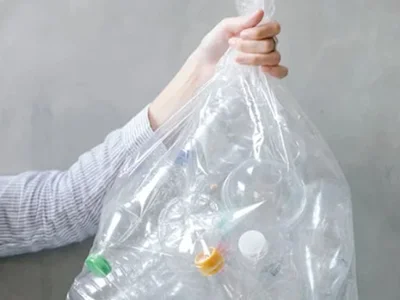Reclaim Waste for Beginners
Reclaim Waste for Beginners
Blog Article
Little Known Facts About Reclaim Waste.
Table of ContentsReclaim Waste - An OverviewReclaim Waste Things To Know Before You Get ThisWhat Does Reclaim Waste Do?Reclaim Waste for DummiesFascination About Reclaim Waste
Discover the kinds, incidents, and forms of liquid waste. Residential sewage waste refers to the waste and products from a property septic system. This kind of waste is created by human beings in homes, colleges, and other structures. This only includes septic systems that have a drain area. The appropriate management and disposal of residential sewage waste require liquid waste to be transferred to a sewage treatment plant where the correct approaches and tools are put on cleanse and deal with waste.
Commercial waste usually includes possible risks, such as combustible products or a combination of liquid and strong waste items, and needs an advanced and in-depth disposal process. The disposal of industrial waste commonly includes the filtration of waste before transportation to ensure secure and correct disposal. Industrial waste is produced from byproducts and overflow of industrial processes and production.
This type of waste can not use the same sewage monitoring transportation or processes as septic or industrial liquids. The industrial waste administration procedure requires the assessment and screening of fluid waste before it undergoes the disposal process (liquid waste removal). Drainage waste is the fluid waste that originates from overflow and excess stormwater in very booming locations or cities
Drainage waste can create contamination and flooding if not handled effectively. Discover much more concerning drain cleansing and waste monitoring. Ensuring proper waste management can avoid disasters and reduce environmental injury. Both people in household settings and experts in industrial or production industries can take advantage of recognizing the procedures and laws of fluid waste monitoring.
The Only Guide to Reclaim Waste
Call PROS Solutions today to find out about our waste management and disposal services and the proper means to take care of the fluid waste you create.
(https://www.find-us-here.com/businesses/Reclaim-Waste-Laverton-North-Victoria-Australia/34166924/)This supposed 'wastewater' is not just a vital source but, after treatment, will be launched to our land, rivers or the sea. Made use of water from bathrooms, showers, bathrooms, kitchen sinks, washings and industrial processes is known as wastewater.

water utilized to cool down machinery or clean plant and devices). Stormwater, a form of wastewater, is runoff that flows from farming and city areas such as roofs, parks, gardens, roadways, courses and rain gutters right into stormwater drains, after rainfall. Stormwater moves unattended directly to regional creeks or rivers, ultimately reaching the sea.
Rumored Buzz on Reclaim Waste
In Queensland, the Get More Info majority of wastewater is dealt with at sewer therapy plants. Wastewater is transferred from residential or commercial websites through a system of sewage systems and pump terminals, recognized as sewage reticulation, to a sewer treatment plant. City governments construct, keep and operate most sewer treatment plants. Operators are certified under the Environmental Management Act 1994 to discharge treated wastewater at an appropriate environmental standard into waterways.
The Department of Natural Resources suggests regional federal governments concerning managing, operating and preserving sewage systems and therapy plants. In unsewered locations, city governments might require householders to install individual or house sewer therapy systems to treat residential wastewater from commodes, kitchens, restrooms and laundries. The Department of Natural Resources authorises the usage of house systems when they are proven to be reliable.
A lot of stormwater obtains no treatment. In some new subdivisions, therapy of some stormwater to get rid of clutter, sand and gravel has actually begun utilizing gross toxin catches. Wastewater treatment takes place in four stages: Gets rid of solid matter. Bigger solids, such as plastics and various other items wrongly discharged to sewage systems, are gotten rid of when wastewater is passed with displays.
Wastewater then flows into large containers where solids settle and are removed as sludge. Oil and scum are skimmed from the surface area. Utilizes little living organisms recognizes as micro-organisms to break down and get rid of staying liquified wastes and fine fragments. Micro-organisms and wastes are integrated in the sludge. Gets rid of nitrogen and phosphorus nutrients that could create algal blossoms in our rivers and endanger aquatic life.
The 30-Second Trick For Reclaim Waste
Nutrient elimination is not readily available at all sewer therapy plants since it needs pricey specialised tools. It is becoming more typical in Queensland. Clear liquid effluent produced after treatment may still contain disease-causing micro-organisms. If this effluent is launched into waterways such as rivers or the sea, the micro-organisms will ultimately die out.

The majority of wastewater streams into the sewage system. Under the Act, local governments administer authorizations and licences for eco pertinent activities (Ages) involving wastewater releases that could have a neighborhood effect.
Getting My Reclaim Waste To Work
Surveillance provides valid details about water high quality and can validate that permit problems are being satisfied. The details gotten via monitoring provides the basis for making water quality decisions.
Report this page